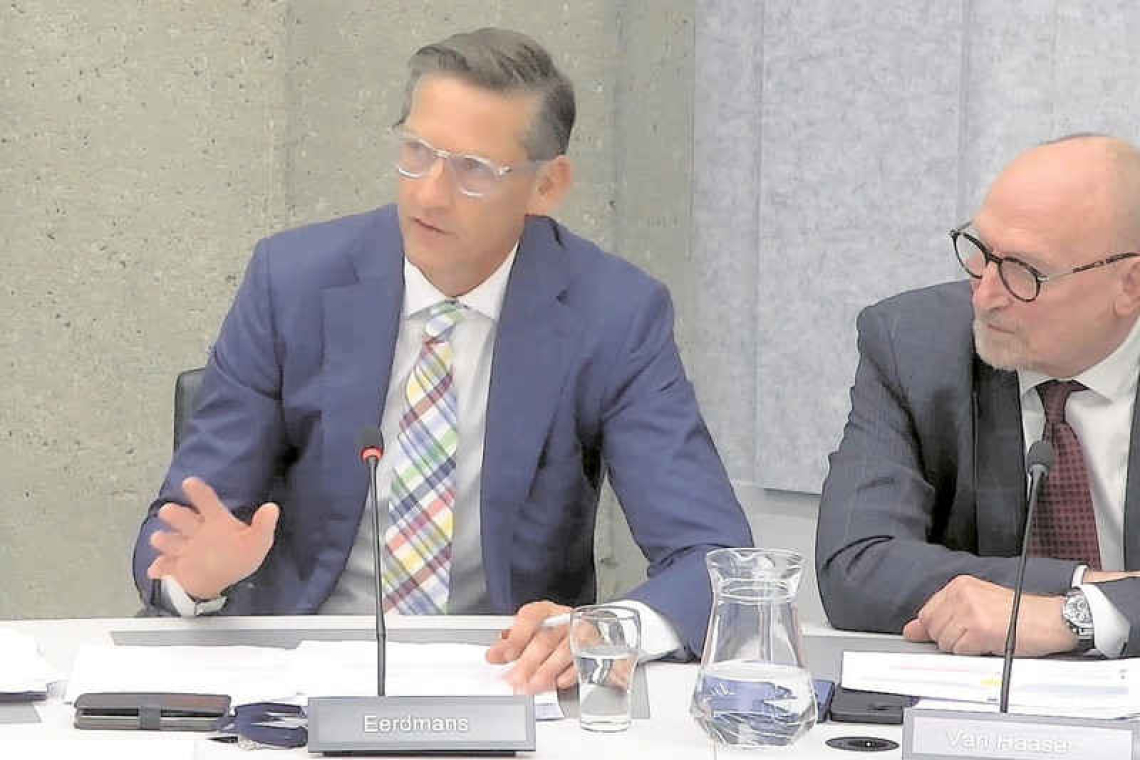Member of Parliament Joost Eerdmans of opposition party JA21.
THE HAGUE--Opposition party JA21 is calling for transparency regarding projects aimed at raising awareness about the Netherlands’ history of slavery. Member of Parliament Joost Eerdmans has submitted additional questions to the government concerning the Dutch contribution to these initiatives.
He also argued that any unused funds from the 200 million euros earmarked for the program should be returned to the state treasury.
The slavery-related projects were discussed last week during a parliamentary debate with caretaker Minister of Home Affairs and Kingdom Relations Judith Uitermark. The previous Dutch cabinet had reserved 200 million euros for policy and initiatives intended to foster greater awareness of the slavery past.
According to Uitermark, non-profit organisations can begin applying for funding starting mid-August, while governments in the Caribbean parts of the Kingdom are expected to submit policy agendas by July 1.
However, Eerdmans raised doubts about the effectiveness of earlier projects funded during the 2023–2024 Slavery Commemoration Year, for which 7 million euros had already been allocated. He specifically questioned subsidies for a number of initiatives, including the travel costs of the Rwanda Dancers Group to the Netherlands, the Winti Bal Masqué festival, and a bead-stringing project titled One Bead at a Time.
According to Eerdmans, these examples raise concerns about the quality of future project proposals. “Apparently, stringing beads together was meant to contribute to the healing of intergenerational trauma. How does the minister evaluate this use of taxpayers’ money? How do these types of projects enhance knowledge and awareness of the history of slavery? And does the government see possibilities to redirect the funds toward more meaningful initiatives?” he asked.
Minister Uitermark responded that all grants are subject to standard assessment procedures. “The Commemoration Year was meant to establish lasting awareness and understanding of our shared past. Projects like podcasts, theatre productions, and documentaries have made significant and often enduring contributions,” she stated.
Uitermark also cited outgoing Prime Minister Dick Schoof, who had emphasised that the 200 million euros are strictly reserved for slavery-related projects and that this policy would remain unchanged. “We are continuing on the path we’ve set,” the New Social Contract (NSC) minister said.
Eerdmans, however, remains dissatisfied. In his follow-up questions, he asked the government to clarify the connection between Rwandan dancers and the Dutch slavery past. He is also requesting a comprehensive list of all projects funded during the Commemoration Year, as well as insight into how applications were vetted.
Finally, he wants confirmation of whether the entire 200 million euros will be used. If not, he argues, the remaining funds should be returned to the state.







